Ata-ul-Haye Nasir, Al Hakam
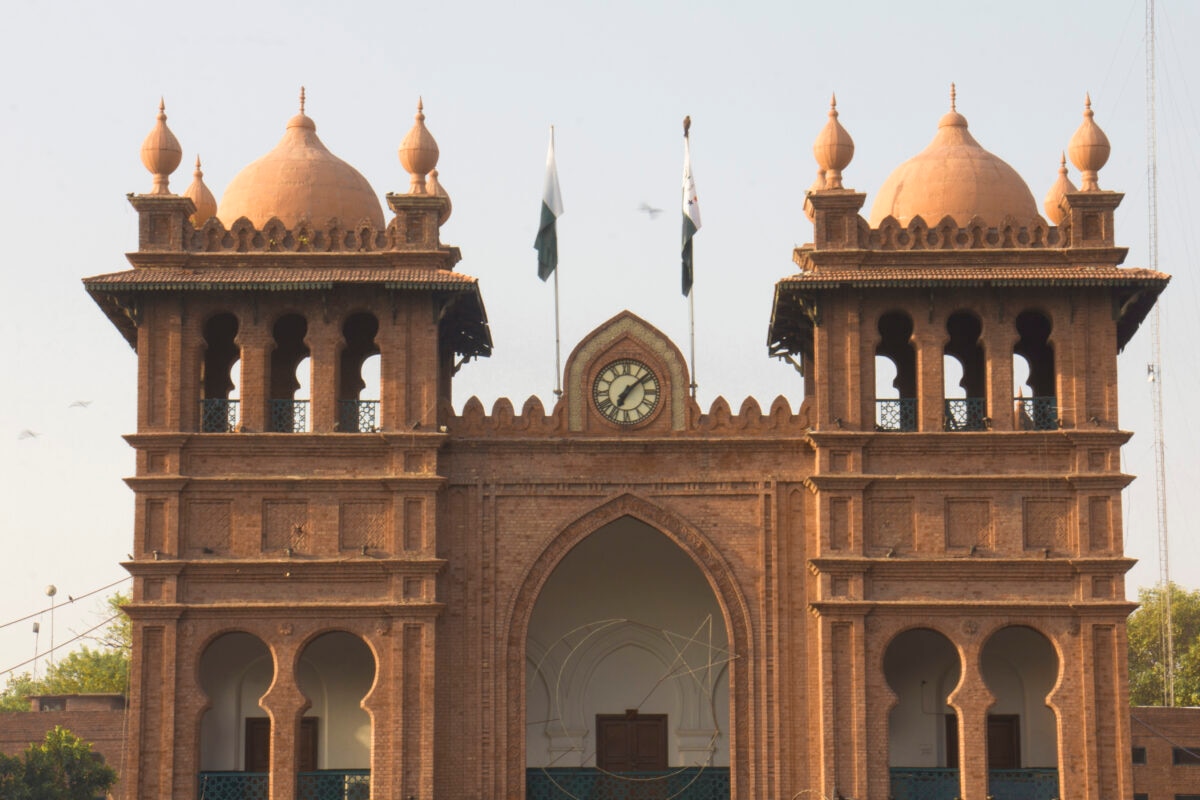
During his visit to Lahore in 1934, Hazrat Musleh-e-Maud, Mirza Bashir-ud-Din Mahmud Ahmadra delivered two lectures at the request of the Punjab Literary League.
Introduction to Punjab Literary League
In 1930, the “Punjab Literary League” was established in Lahore with the aim of “advancement of learning and literature, to knit together all ‘distinterested servants’ of literature into one brotherhood” and “to inculcate a love for culture, to create and stimulate taste for extensive reading, to bring together on the same platform people of all tastes, and to broaden the outlook of the public.” (The Civil and Military Gazette, 27 June 1930, p. 16)
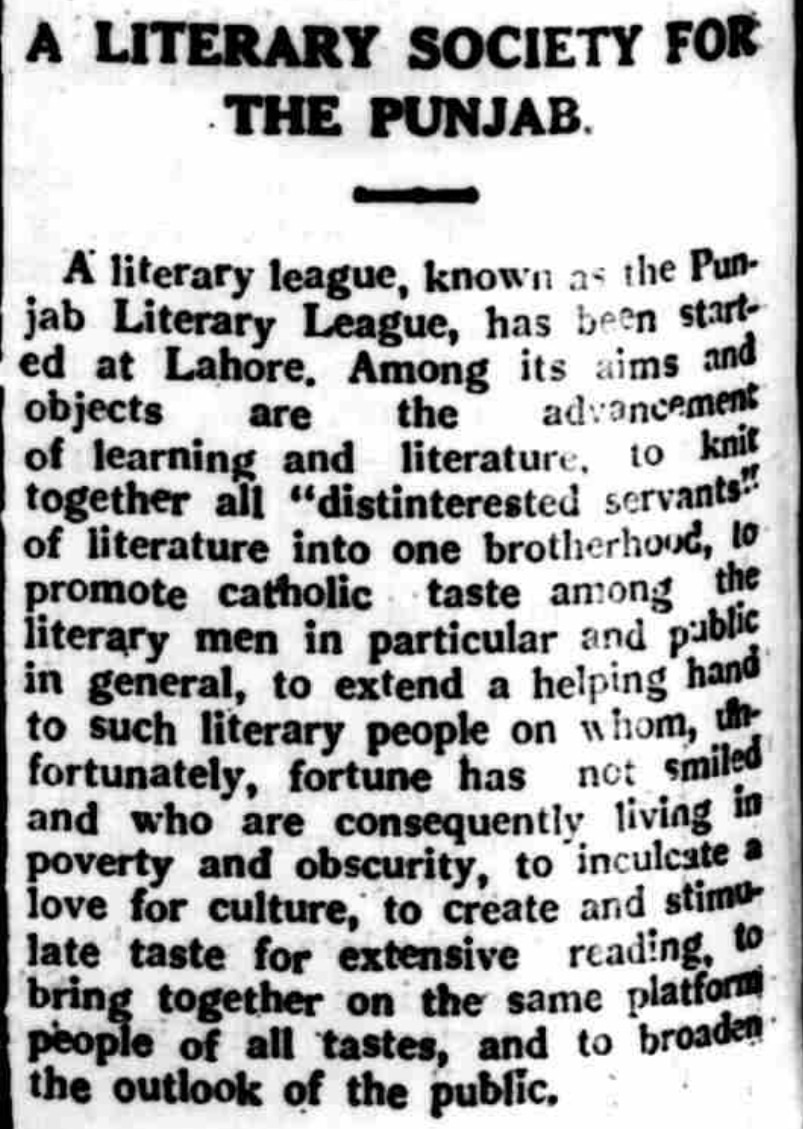
Announcement about the lectures
The Civil and Military Gazette announced:
“Lectures by Mirza Bashir-ud-Din
“Under the auspices of the Punjab Literary League, His Holiness Mirza Hazrat Bashir-ud-Din Mahmud Ahmad, head of the Ahmadiyya community of Qadian, will deliver two discourses on ‘The Place of Arabic in Languages’ and ‘Does Humanity need Religion?’ on Thursday, May 31, and Saturday, June 2, at the Y.M.C.A. Hall and Town Hall respectively, at 8-15 p.m. each day. Dr B.A. Quraishi, M.A., Ph.D., Principal, Islamia College, and Dr S.K. Datta, Principal, Forman Christian College will preside over the lectures.” (The Civil and Military Gazette, 30 May 1934, p. 18)
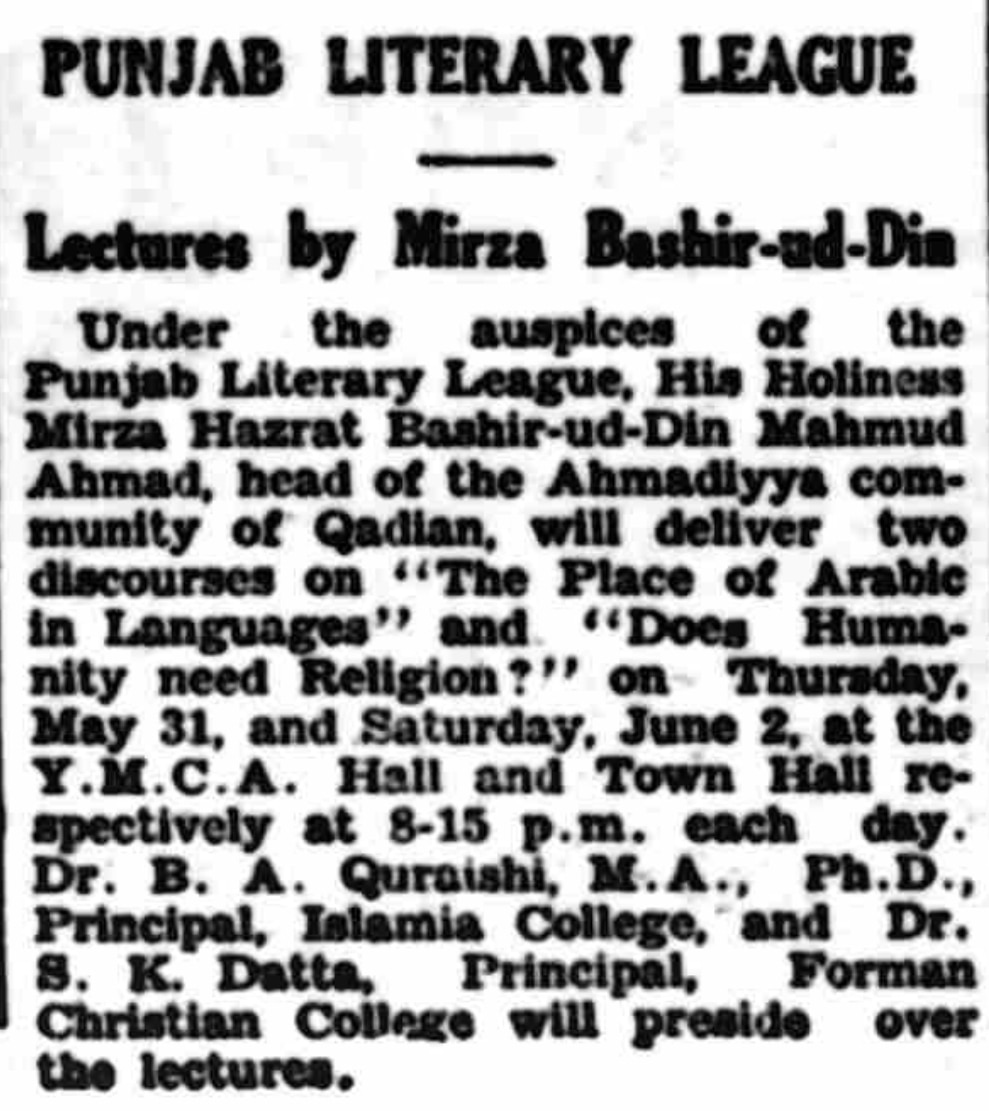
First lecture
The first lecture was delivered on 31 May 1934, at the Young Men’s Christian Association (YMCA) Hall, titled “Arabi Zuban ka Maqaam Alsina-e-Aalam mein” – The Place of Arabic in Languages. The session was presided over by Dr Barkat Ali Qureshi, Principal of Islamia College, Lahore.
The Civil and Military Gazette reported under the heading “Arabic As Mother of All Languages”:
“‘All the languages of the world spring from Arabic,’ asserted the head of the Ahmadiyya community, Hazrat Mirza Bashir-ud-Din Mahmud Ahmed, at a meeting of the Punjab Literary League in Lahore on Thursday.
“The Mirza [Sahib] pointed out that one of the characteristics of Arabic was that its words were not conventional, but were related to their meanings and such words could not have been borrowed from other languages, as scores of such words belonging to the same root existed in the Arabic language.
“Further, the Mirza Sahib argued, with illustrations in support, that Arabic was the mother of languages and any words which it could have borrowed from other languages would not fit in with its principles of word formation.
“Arabic had, however, developed along the original principles of human speech.
“Dr. B.A. Qureshi, Principal of the Islamia College, presided over the meeting. A.P.” (The Civil and Military Gazette, 2 June 1934, p. 14)
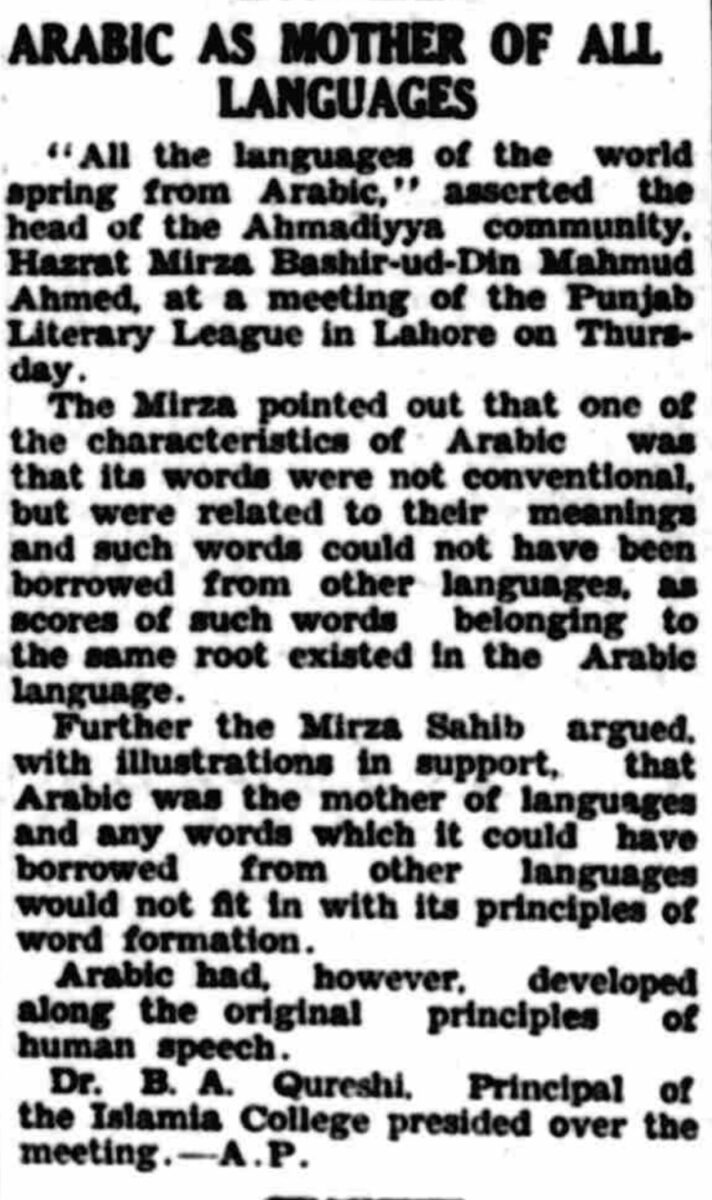
During his lecture, Huzoorra said that people generally assume that language is merely a source of conveying one’s expressions, however, this is incorrect. Language holds great historical significance as well. The language of the people of a certain country can indicate which countries they were in contact with, since the names of certain things – which are specialities of another country – make it clear that they had direct or indirect relations with that foreign country. Further, the vocabulary of a certain language depicts a nation’s cultural evolution, whereas, its terminologies about values and religion inform one about their intellectual evolution.
Huzoorra said that he desired to speak on what the study of the Arabic language tells us in regards to its status in front of the other languages. The ancient European historians would declare the Arabic language to be very new in comparison to the ancient languages. However, the German historian, Aloys Sprenger (1813-1893) and English historian William Robertson Smith (1846-1894) disagreed with this idea, and after a comparison of languages, they deduced that the Arabic language is in fact closer to the Semitic language, and also that the Aramaic and Hebrew languages seem to be impacted by the Arabic language.
Huzoorra said that the most ancient Semitic language whose existence has been known is the Samaritan Aramaic language, which became common in Babylon through the Hammurabi family. The traces of this language that have been discovered manifest that, in comparison to the Hebrew and Syriac languages, the Samaritan Aramaic language was closer to the Arabic language. Hence, in addition to the grammar, the composition of the words also suggests this language is more similar to Arabic. Similarly, it is also evident that the names of the Samaritan Aramaic tribes are similar to the Arab names. Thus, these facts suggest that Arabic is the most ancient Semitic language among all known languages.
Huzoorra continued by saying that once the Arabic language is proven to be the most ancient among the known Semitic languages, it comes in the top-tier languages, and its historical time period exceeds 4,000 years. Thereafter, one needs to assess it in comparison to the other ancient languages of the world, as to whether Arabic is impacted by those languages or, in fact, has impacted the other languages.
Huzoorra further said that the connection between these languages can be proven only by one method, and that they must have some common ground. In regards to the common grounds, it is essential that they are present with respect to the fundamental lingual composition, and relate to those things that are prevalent in all countries, and are required in all cultural eras. For instance, the words that are used for mother, father, water, food, anger, and love. These are such things whose expression cannot be abandoned by the people of any era or country. Thus, if common grounds are found between the languages in relation to such things, then one ought to accept that these languages are derivatives of the same source.
Huzoorra said that history is unable to guide us as to which language was, in fact, the source of all languages. Thus, we have only one method available to research this fact and that is for us to ponder over the fundamental composition of the languages.
Huzoorra went on to narrate the hallmarks of the Arabic language. For instance, its words are not conventional but are related to their meanings and such words could not have been borrowed from other languages, as scores of such words belonging to the same root existed in the Arabic language. Any words that it could have borrowed from other languages would not fit in with its principles of word formation. Huzoorra also mentioned that the Arabic language, however, developed along the original principles of human speech. (Al Fazl, 5 June 1934, pp. 1-2)
President’s address
After Huzoor’sra lecture, the president of the session advised the attendees to benefit from this lecture, and expressed his desire to listen to such knowledgeable subjects in the future as well. (Al Fazl, 7 June 1934, pp. 1-2)
Speech by the son of Lala Bhim Sen
This lecture was attended by people from all walks of life, including Lala Kanwar Sen, former Chief Judge Kashmir, who was the son of Lala Bhim Sen. In his speech, he commended Huzoor’sra lecture and particularly mentioned that his father learnt Arabic from Hazrat Mirza Ghulam Ahmadas. He noted that the lecture comprised scholarly and philosophical majesty, and that he had attentively listened to the lecture and benefited a lot. (Ibid. p. 2)
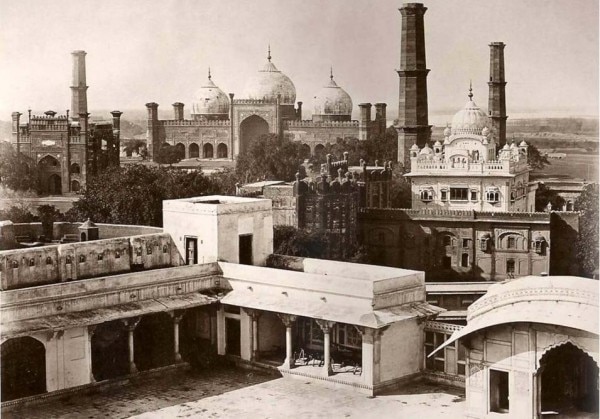
Second lecture
The second lecture was delivered on 2 June 1934, titled “Kiaa Insaan Mazhab ka Mohtaj Nahin?” – Does not Humanity need Religion? – at the Town Hall Lahore. The lecture was attended by people from all walks of life, belonging to various faiths as well.
At the beginning of the session, the dignitaries of the Punjab Literary League welcomed Hazrat Musleh-e-Maudra with a garland of flowers. The session was presided over by Dr Surendra Kumar Datta (1878-1942), Principal of the Forman Christian College. In his welcoming speech, the president called the attention of the audience to attentively listen to the lecture being delivered by such a great personality. (Ibid.)
In his lecture, Huzoorra refuted five prominent objections often raised against the need for religion.
First objection
Huzoorra said that the objection is raised that religion gives rise to violent divergence of opinion, which results in the disturbance of public peace. My heart is filled with grief when I see that, through the misguided activities of some so-called religious people, much disrepute has come to religion. I see that human lives are taken due to trivial disputes relating to the religious festivals of each other. I have read the Vedas and other religious scriptures of the Hindus and I bear witness that Hinduism does not support the shedding of human blood in the manner in which sometimes its misguided followers shed it. And the Holy Quran lends not the faintest support to the view that people should be killed for singing songs before mosques. Islamic teaching is far above creating or tolerating such a mentality. It is most sound and complete in all its different aspects. Christianity, too, gives no encouragement to its followers to pick a quarrel with the adherents of other religions in its name.
Religion exhorts its followers to live peacefully with their fellow beings. But what has science to give us in place of this teaching? Is not science responsible for the creation of the innumerable instruments of destruction that have caused havoc in the past? Are not the poisonous gases and deadly bombs that cause irreparable loss to human life on a dreadfully vast scale the work of science? If you condemn religion on the plea that much innocent human blood has been shed in its name, you will have to condemn science with much greater vehemence on the same plea as well.
Second objection
Another objection is raised that religion has always proved to be a hindrance to the development of human intellect. Mr Bernard Shaw is one of the leading exponents of this seemingly plausible but really untenable view. The protagonists of this theory argue that ‘unless man does experiment or makes mistakes, they cannot acquire true knowledge. If by providing a right and infallible teaching religion has saved mankind from falling into perils, it evidently has dispensed with the necessity for mankind to use their reason to discover what is right and useful for them and what is not.’
Any religion that stands in the way of the development of human reason and exhorts its adherents to follow thoughtlessly, I will be the first person to reject it. However, it is inconceivable that God should Himself endow us with reason and intellect and, at the same time, forbid us to make use of them. It is evidently incompatible with His all-comprehensive wisdom that He should allow such a manifest inconsistency to exist in the world. The fact is that the possession by mankind of the bare knowledge of an unalterable truth cannot conceivably be considered to impede their intellectual progress. If this criterion is regarded as true, then all the inventions that science has made so far should be rejected, and all its established truths spurned on the plea that their acceptance obstructs our intellectual growth. It needs no extraordinary intelligence to understand that if the discovery of a new fact or law bars the door of research and investigation in one direction, it opens up endless new vistas to mankind’s intellectual ambition in another and thus a succession of new problems arises that keep the human mind engaged and this chain of unsolved problems continues, knowing no end. It is not correct to say that the possession by mankind of the knowledge of an unchangeable truth in any way interferes with their intellectual evolution.
It becomes easy to comprehend when we realise the eternal truth that science is the Act of God and religion is His Word and there could conceivably be no conflict between God’s Work and His Word as they proceed from the same Source. Just as in science, the discovery of one truth or natural law leads to research into many other allied subjects, similarly, a truth presented by religion raises many new questions which in turn begin to demand careful study and research.
For instance, alcohol consumption and gambling are prohibited in Islam. The prohibition of alcohol and gambling, according to the Holy Quran, is based on the fact that their disadvantages outweigh their advantages. This commandment has placed in our hands a clear-cut law that we should not use a thing for which the harm is greater than its advantage. In our everyday lives, we come across many things about which the Holy Quran contains no instructions on whether they should be used or shunned. We should test each one of them with the touchstone referred to above. We should use it if its advantages are found to be greater than its disadvantages and leave it if the case is otherwise. The precept embodying the prohibition regarding gambling and the use of intoxicating liquors reveals another important truth that these two things are not wholly devoid of all good.
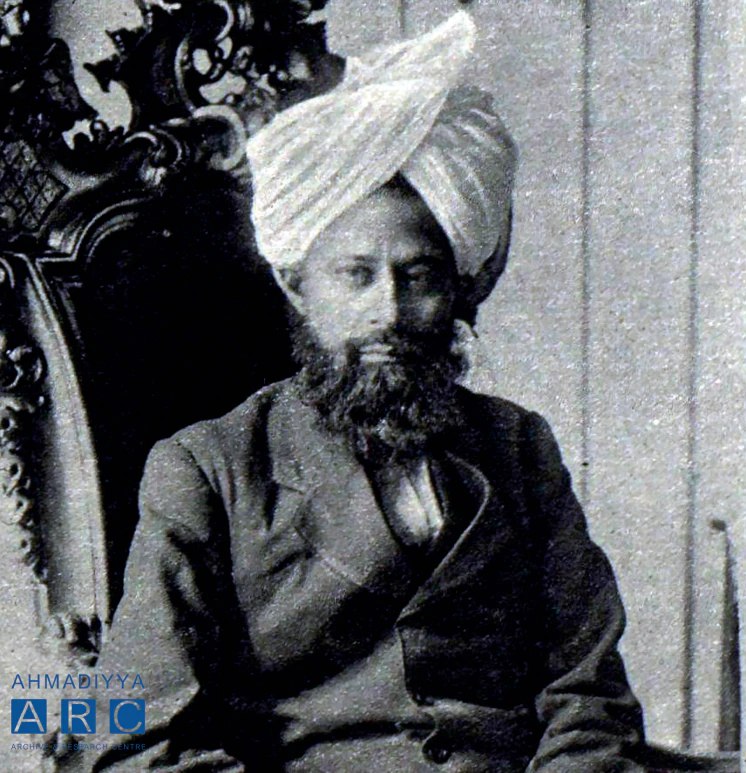
Third objection
Another objection that is often raised is that religion engenders superstition in the minds of its votaries, which ultimately bars human progress. The religion does not produce superstition, but rather, an invincible faith and certainty in the hearts of its adherents. If religion may be considered to be responsible for making people superstitious because some “religious” people are superstitious, equally must science be held responsible for making people superstitious because, among scientists too, there are those who are as superstitious and whimsical as some “religious” people are. So if we are to reject religion on this plea, science will also have to be discarded. Those who accuse religion of this charge and have declared science to be free from it have conveniently ignored the fundamental principle that religion being the Word of God and science a study of His Work, there could possibly be no conflict between them.
Fourth objection
Another objection is raised that as human needs vary with the change in circumstances, so, by setting up an immutable code of laws, religion involves them in great difficulties. It is said that about 1350 years ago, the Holy Prophetsa gave to the world a religious system that might be regarded as a suitable code of life according to the then circumstances, but with the passage of so many centuries, tremendous changes have occurred in human circumstances and thus continuing the rigid adherence to those laws has proved an insurmountable impediment in the way of the advancement of contemporary Muslims.
For God, the future is no secret. Being an Omniscient God, He knows as much about the needs and requirements of mankind in the present as He is aware of those that will arise after a thousand or a hundred thousand years. So, if He reveals a teaching and says that it will fully satisfy all human requirements at all times, no change in the conditions of mankind can out-step that teaching, as it has proceeded from an All-Knowing and All-Wise God Who knows mankind’s requirements of past, present and future.
I claim that no change in the circumstances of any people, at any time, can demonstrate a single teaching of the Holy Quran to be impracticable and I am at the disposal of anybody who may endeavour to convince me of the untenability of my claim; and I will readily accept my defeat if a single teaching of the Holy Quran is shown to me to have been in the past or to be at present unsuited to human needs.
Fifth objection
Another objection is raised that religion compels one to believe in things that have no connection with our practical everyday life. It is said that we have to believe in the existence of angels, while it does not concern us in any way whether they exist or not, nor if ever they should exist, does it concern us what their duties are and how they perform them. To refuse to accept a truth propounded by religion on the plea that it does not concern us is beyond comprehension. Every day in the news, we read with interest the accounts of incidents and happenings that do not concern us at all, nor are we benefited in any way by reading them, yet we read them, talk about them and discuss them, because such news form a part of general knowledge, and the possession of extensive general knowledge enriches the intellect and is no mean acquisition. The fact is that becoming informed of things, though they do not concern us in any way and are yet part of general knowledge, is rightly considered to be essential to our intellectual adornment. The primary object of mankind’s existence is to seek and acquire true knowledge. So to refuse to accept an established truth is no sign of sanity. Those who do not believe in the existence of angels are fully justified in demanding from us arguments in support of their existence, but there is no sense in refusing to believe in their existence, even if it is irrefutably proven. I am prepared to prove to anyone who may approach me on this question that the angels are not imaginary beings and they play an important part in shaping our destinies and in guiding us in our daily pursuits. (The Review of Religions, Vol. 33, July 1934, pp. 245-258)
President’s remarks
After Huzoor’sra lecture, the president highly commended the lecture and expressed his desire that the people of Lahore may get more opportunities to listen to such great lectures in the future as well. (Al Fazl, 7 June 1934, p. 2)

